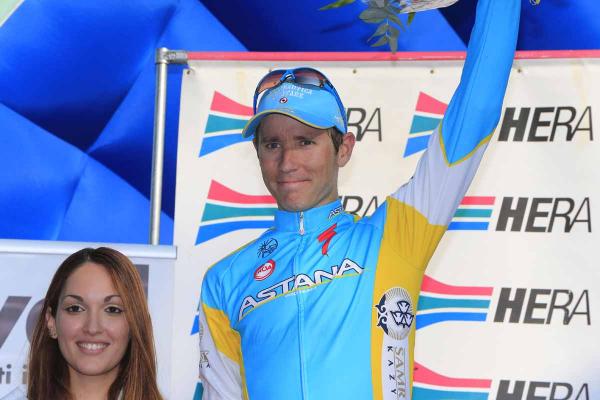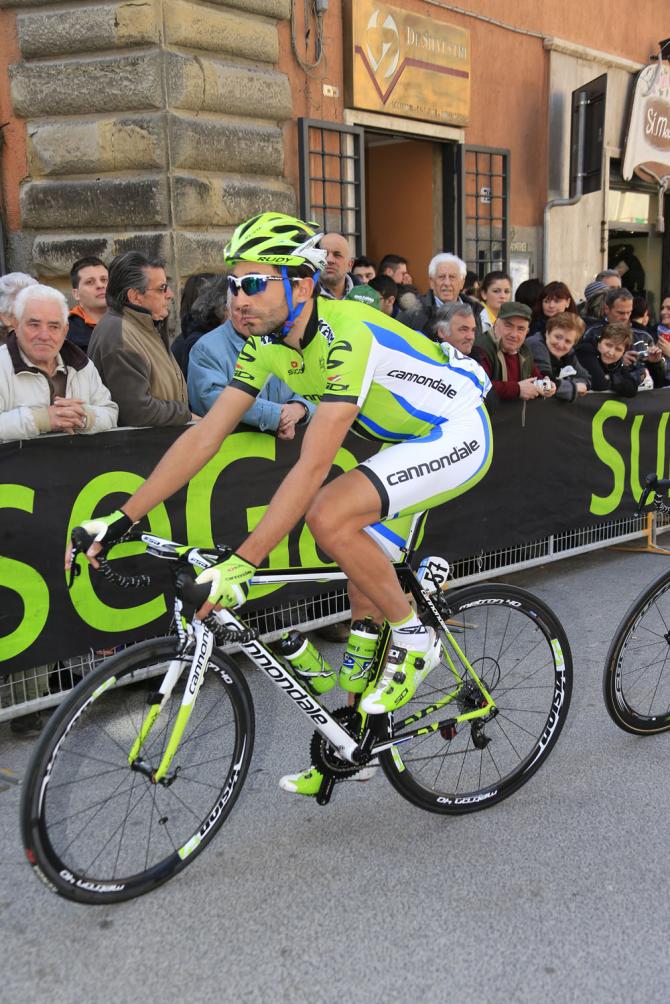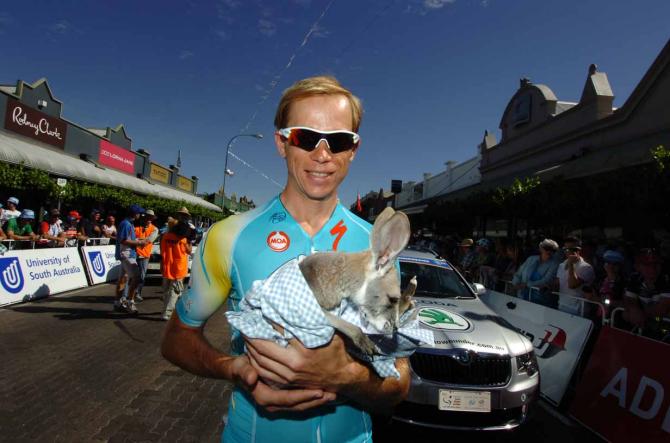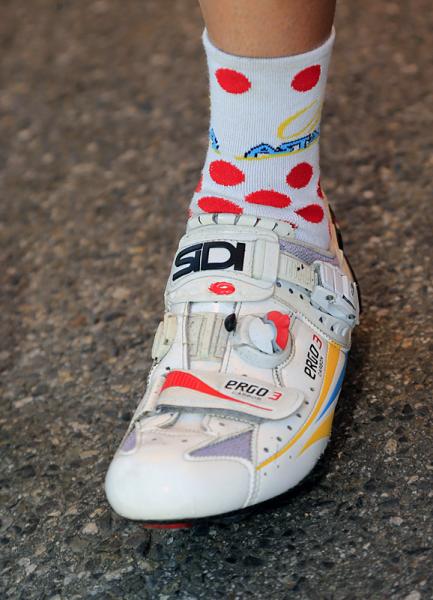News shorts: Kessiakoff considers retirement
Moser on his travails, Kashechkin on Astana cases




Kessiakoff considers retirement
Fredrik Kessiakoff is still without a contract for next season and the Swede has admitted that he is considering retirement if a suitable offer does not materialise in the coming weeks. He has spent the past four seasons with Astana but the Kazakh team opted not to retain him for 2015.
"It's a tough market and I also need to decide what I want," Kessiakoff told Eurosport.se. "I'm not sitting at home and feeling depressed but I don’t know right now what to do next year.
"I'm trying to live in the moment and I'm enjoying my free time at home in Sweden to meet my family and friends. Then sooner or later it will become clear what to do next."
His agent Giuseppe Acquadro is reportedly in talks in a bid to secure him a team for next season but Kessiakoff suggested that he would not continue racing merely for the sake of it. "It must also be at a level where it is motivating. I don't want to continue at a level where I feel in January that 'ah, this doesn't really feel like fun,'" he said. "I would like to have a team that I feel I can get backing from."
A former mountain biker, Kessiakoff turned full-time to the road in 2009 and raced for Footon-Servetto and Garmin before joining Astana in 2011. The high water mark of his time at Astana came in 2012, when he won the Pontevedra time trial at the Vuelta a España and spent two spells in the polka dot jersey at the Tour de France.
Moser frustrated by low-key 2014 season
Get The Leadout Newsletter
The latest race content, interviews, features, reviews and expert buying guides, direct to your inbox!
Moreno Moser (Cannondale) has admitted that he is at a loss to explain his low-key showings in 2014 and the second half of 2013. The Italian's professional career got off to a scintillating start in 2012 when he captured the Trofeo Laigueglia and the overall classification at the Tour of Poland, and he followed that up with an impressive win at Strade Bianche last season.
Moser has failed to shine since, however, and he completed the 2014 season without a victory or any results of note. "This year I never found my best legs," Moser told Tuttobici.
"I've gone even worse than in 2013 and I still don't understand why. Obviously I'm questioning myself about it. I don't have any physical problem but it's been hard to get my condition consistently. I don't think this problem is a question of training because I only did well towards the end of the season when I practically wasn't training anymore.
"I've noted that I'm having runs of form without any sense. One day I feel good, the next I'm not going at all. It's complicated to explain and it's not dependent just on my training."
Moser will travel to Boulder on November 13 for the first gathering of his new team, formed after a merger with the existing Garmin-Sharp team. "It's not a case of a few riders being added to an already formed group. We're looking at a complete reshuffling of the cards. It will be a new project for everybody," he said.
Moser confirmed, too, that he had no plans of following the example of his cousin Ignazio, who last month he announced that he was retiring from cycling after two years with the BMC Development Team in order to concentrate on viniculture.
"No, no. Even if your morale suffers from the blows you take and the results that don't come, we're talking about my job and I want to do well," he said. "I still love my profession but clearly being on a bike is a lot more enjoyable when you're going strong. And I really want to enjoy myself again."
Kashechkin on Astana case
Former Astana rider Andrey Kashechkin has said that the team's recent spate of doping cases is part of a problem that extends beyond the Kazakh squad, and complained that managers at top-level teams focus on results to the detriment of human development.
Kashechkin tested positive for a homologus blood transfusion in 2007 while riding for Astana, just weeks after teammate (and current team manager) Alexandre Vinokourov had done so. Kashechkin returned to Astana in 2012 but was briefly suspended for apparently refusing to sign the team's code of conduct. His contract was not renewed at the end of 2013.
"It's not just a problem for this team but for the whole of professional cycling. I ask myself questions about the riders who went the Grand Tours like the Vuelta, the Giro and the Tour de France – are they happy after a big victory?" said Kashechkin, who complained that many top-level teams "don’t develop a professional management."
"They need to be able to accept the advice of external professionals. Oftentimes, the emphasis is solely on the result and physical development rather than paying attention to the human development that will serve as an example for future generations."
Kashechkin is currently Qatar, where he is representing Kazakhstan at the Doha Goal Forum. The Astana team's place in the 2015 WorldTour is currently being reviewed by the UCI Licence Commission following positive tests from Valentin Iglinskiy, Maxim Iglinskiy and stagiaire Ilya Davidenok in recent weeks.
Anti-doping officials meet with criminal investigators
The top anti-doping and sports administrators met with international criminal investigators in a World Anti-Doping Agency in Istanbul, Turkey last week, for the first Science and Investigations Symposium.
The meeting brought together representatives from national and international drug enforcement agencies such as INTERPOL and the United Nations Office on Drugs and Crime to discuss recent developments in investigations on the illegal circulation of drugs, the identification of new drugs with doping potential, and the strengthening of communication and data sharing within anti-doping and between institutions involved in drug surveillance and enforcement, according to a WADA press release.
WADA President Sir Craig Reedie was one of the participants, together with Arne Ljungkvist,t he Chairman of the WADA Health, Medical and Research Committee, and WADA's Director of Science, Dr. Olivier Rabin, as well as the President of the Turkish Olympic Committee, Professor Ugur Erdener.
"The very fact that we have been able to stage such an event now is I believe a mark of how far anti-doping has evolved in recent years," Reedie said.
"We expect this Symposium to result in significant improvements in the gathering and sharing of information regarding drugs that are of concern to both sport and wider society. Bringing together such a wide array of experts, with the introduction of the revised Code and renamed International Standard for Testing and Investigations (ISTI) just weeks away, was an important step to take. We were able to share ideas, and crucially learn more about the direction in which we are moving with anti-doping."